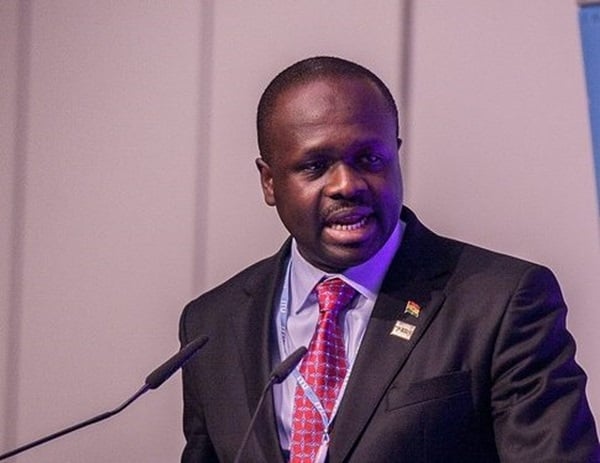Ghana’s environmental crisis, fueled by the destructive practice of illegal mining known as “galamsey,” has prompted a concerted government response, spearheaded by Defence Minister Dr. Edward Omane Boamah. The illegal mining activities, characterized by the indiscriminate excavation and processing of mineral resources, have left a devastating trail of environmental destruction, particularly impacting the nation’s rivers. These waterways, essential for drinking water, irrigation, and ecosystem health, have been choked with silt and sediment, diverting natural flows and contaminating water sources. The Minister’s initiative underscores the urgency of the situation and the government’s commitment to reversing the damage and restoring these vital waterways to health. The intersectoral approach reflects the complexity of the issue, demanding expertise and resources from various government bodies and institutions.
The high-level intersectoral meeting convened by Dr. Boamah brought together key stakeholders to strategize and coordinate efforts towards river restoration. Participants included representatives from DIHOC-DENZEL, a construction and engineering company affiliated with the Ghana Armed Forces, the Ministry of Lands and Natural Resources, the Forestry Commission, the Water Resources Commission, and the Engineers Regiment of the Ghana Armed Forces. This collaboration signifies a multi-pronged approach, incorporating expertise in engineering, land management, forestry, water resource management, and military logistics – all essential components of a comprehensive restoration plan. The Minister acknowledged the vital contributions of these institutions, highlighting their technical expertise and commitment to tackling the environmental crisis. This collaborative approach underscores the government’s recognition that addressing the complex issue of galamsey requires a unified and coordinated effort across multiple sectors.
The primary focus of the initiative is the reclamation of heavily polluted rivers, aiming to dredge the accumulated silt and sediment that has choked these waterways. This process involves removing the excess material from the riverbeds, restoring natural water flow, and improving water quality. Beyond dredging, the plan also encompasses the restoration of rivers that have been diverted or damaged by illegal mining activities. This may entail restructuring riverbanks, re-establishing natural channels, and implementing measures to prevent further erosion and degradation. The scale of the initiative indicates a substantial undertaking, reflecting the widespread damage caused by illegal mining across the country. The government’s commitment to addressing this issue signals a long-term vision for restoring the ecological integrity of Ghana’s river systems.
Dr. Boamah linked the river restoration campaign to the broader national goal of achieving a 24-hour economy, emphasizing the potential for job creation through various avenues. Land reclamation efforts, a key component of the project, will create opportunities for skilled and unskilled labor. Similarly, the development of irrigation infrastructure, facilitated by the restored rivers, will provide employment opportunities and boost agricultural productivity. Furthermore, the initiative envisions promoting freshwater transport, potentially opening up new avenues for trade and transportation, further contributing to economic growth and job creation. This holistic approach aims to address both environmental and economic challenges, transforming a devastating problem into an opportunity for sustainable development.
The government’s approach to addressing the galamsey problem is multifaceted, aiming not only to restore the environment but also to provide sustainable livelihoods for communities impacted by the illegal mining activities. This dual focus recognizes the socio-economic factors that contribute to galamsey, and the need to offer alternative sources of income and opportunity to those whose livelihoods have been disrupted by the crackdown on illegal mining. This initiative reflects a commitment to ensuring that environmental rehabilitation goes hand in hand with economic empowerment, fostering long-term stability and resilience within affected communities. By providing sustainable alternatives to illegal mining, the government aims to break the cycle of environmental degradation and poverty.
The river restoration campaign is not just an environmental initiative; it is a testament to the government’s commitment to sustainable development, blending environmental protection with economic opportunities. The initiative seeks to transform the environmental devastation caused by galamsey into a catalyst for job creation and economic growth. By reclaiming degraded lands, developing irrigation systems, and promoting freshwater transport, the government is creating pathways for sustainable livelihoods and long-term economic development. This integrated approach addresses both the immediate environmental crisis and the underlying socio-economic factors that contribute to it, demonstrating a comprehensive strategy for a more resilient and prosperous future. The success of this campaign will not only revitalize Ghana’s rivers but also serve as a model for addressing similar challenges in other regions grappling with the impacts of illegal mining.














